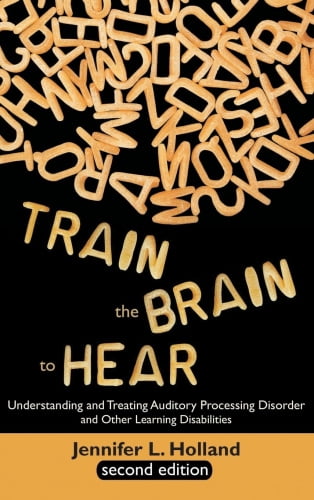

This brain region develops slowly, only reaching maturity in the late 20s. Attention is mainly controlled by the frontal lobe, responsible for many of our higher cognitive functions such as planning and organization. While attention is closely related to sensory and language processing, they begin in different parts of the brain. But new research suggests that for many of these children, the symptoms may actually indicate a more fundamental problem with understanding and processing speech.

The rise in diagnoses of ADD and ADHD in children over the last couple of decades has been a great cause of concern and controversy for parents and scientists alike. Read below for the key takeaways, or view the recording now. Marty Burns' webinar “How Do ADD, Dyslexia, and Auditory Processing Disorder Overlap?”. Early intervention to improve auditory processing can have a significant positive impact on a child’s learning.The parts of the brain that handle sensory input develop earlier than those responsible for focus and attention.Children with a family history of dyslexia also have more difficulty with auditory processing.Children who are perceived as not paying attention or not trying may actually be tuning out because they are having trouble understanding the words they hear.Email and text proofing.How Do ADD, Dyslexia, and Auditory Processing Disorder Overlap?ĭid you know that ADD, dyslexia, and auditory processing disorder highly overlap? In my world there is no box.īTW.I had to reread the above test 6 times to find all the errors and remove the words left over from changing thoughts. When people have said they "think outside the box", I think to myself.what box. I'm able to see things in different ways. My brain works different than most around me. I've never been tested, but at my age (late 40's)I don't know why I would. It's probably that I'm paying more attention after finding this Reddit group. Not sure why I'm just realizing this other than it could be getting worse. Over the last year I realized I have a problem focusing when there are multiple audio inputs in my environment. There's probably more little things I can't think of right now. I also have problems processing left and right. I can read okay, but comprehension is horrible, issues with transposing letters and numbers, not being able to move to the next line in a paragraph without skipping 1 or more lines of text and horrible spelling. I've told friends and family I have a "lite" case of Dyslexia. There are lots of resources online about active listening. I am right in my understanding?" Then allow the other person to confirm or re explain. Then stop the conversation and say "Okay so to summarize, we have agreed to do x, y, z in that order by p date. If possible so in meetings with supervisors etc. If meds work for you go for it they bring you back to normal functioning. eg the week leading up to including my final presentation and I would be medicated for this time period. So with my doctors supervision I would plan 2 to 4 crunch weeks a year. I don't gel with medication as I get extreme depressive side effects.
#AUDITORY PROCESSING DISORDER AND DYSLEXIA FREE#
If I got to a free day and it was still free I would treat myself and do something i really wanted to do to relax. This helped me refocus when I was drifting and gave me small achievable bite sized goals. I put these up behind my desk and would visually scratch stuff out as I did it. Then I had a weekly schedule of to do lists for everyday, including free days to make up. I gave myself a monthly calendar of broad strokes of what needs to be done when, working in 2 to 4 float days to allow catch up if I was running behind or had a bad day. When completing my masters I basically planned everyday. If I don't read everyday I find the dyslexia more pronounced.


 0 kommentar(er)
0 kommentar(er)
